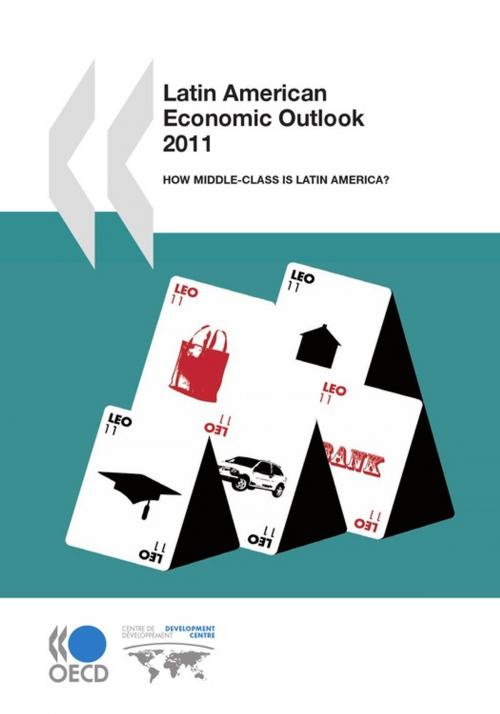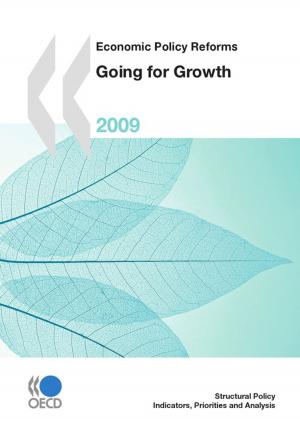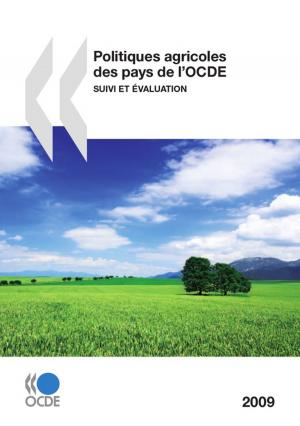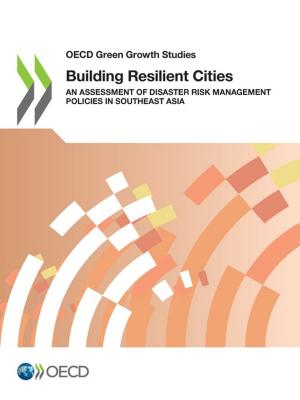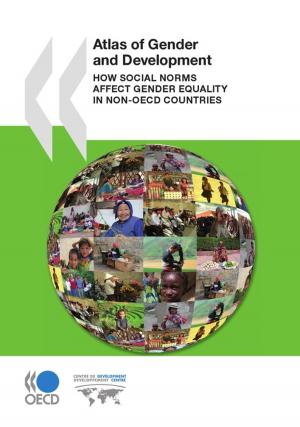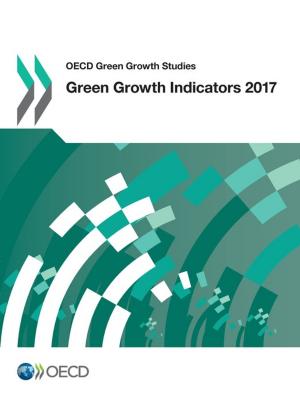Latin American Economic Outlook 2011
How Middle-Class Is Latin America?
Business & Finance, Economics, Economic Development| Author: | Collective | ISBN: | 9789264094659 |
| Publisher: | OECD | Publication: | December 16, 2010 |
| Imprint: | OECD | Language: | English |
| Author: | Collective |
| ISBN: | 9789264094659 |
| Publisher: | OECD |
| Publication: | December 16, 2010 |
| Imprint: | OECD |
| Language: | English |
This year’s Latin American Economic Outlook focuses on those in the middle of the income distribution in Latin America. If these middle sectors have stable employment and reasonably robust incomes, then, arguably, they provide a solid foundation for economic progress. Moreover, following the political role often attributed to the middle classes by historians and sociologists, they might also support moderate but progressive political platforms in Latin America’s democracies. In fact, this report shows that, contrary to expectations, in Latin America this group is still economically vulnerable, few have university degrees and many work in informal employment. This is a “middle class” quite different from the group that became the engine of development in many OECD countries. In Latin America, what are the economic characteristics of these vulnerable middle sectors? How do they perceive inequality, public policies and democracy? How can public policies protect the livelihoods of these middle-sector households? These questions guide the Outlook to discuss why and how upward mobility should and can be promoted, and how safety nets can be put in place to protect the most vulnerable segments of people within those middle-income groups, as well as the poorest and most disadvantaged households in the economy at large. The report tackles policies such as social protection and education that promote upward mobility, and underscores the importance of fiscal policy as a tool to finance the required reforms and programmes that can engage the Latin American middle sectors in a renewed social contract.
“Latin America is undergoing a rapid transformation and the middle classes are one of the most powerful motors of this change. This edition of the Latin American Economic Outlook analyses the process of expansion of the region’s middle sectors through innovative statistical methods and from a refreshing perspective. The middle classes are dynamic but also vulnerable; they are not poor but they are nevertheless far from enjoying a comfortable and secure economic situation. Their future depends on their own actions, and on the economic and social policies that the region’s governments will adopt over the next decade.”
Eduardo Lora, Chief Economist, Inter-American Development Bank.
“This new report from the OECD Development Centre touches upon a theme that is not often studied but which is of vital importance for the development of our countries: middle-income groups in Latin...
This year’s Latin American Economic Outlook focuses on those in the middle of the income distribution in Latin America. If these middle sectors have stable employment and reasonably robust incomes, then, arguably, they provide a solid foundation for economic progress. Moreover, following the political role often attributed to the middle classes by historians and sociologists, they might also support moderate but progressive political platforms in Latin America’s democracies. In fact, this report shows that, contrary to expectations, in Latin America this group is still economically vulnerable, few have university degrees and many work in informal employment. This is a “middle class” quite different from the group that became the engine of development in many OECD countries. In Latin America, what are the economic characteristics of these vulnerable middle sectors? How do they perceive inequality, public policies and democracy? How can public policies protect the livelihoods of these middle-sector households? These questions guide the Outlook to discuss why and how upward mobility should and can be promoted, and how safety nets can be put in place to protect the most vulnerable segments of people within those middle-income groups, as well as the poorest and most disadvantaged households in the economy at large. The report tackles policies such as social protection and education that promote upward mobility, and underscores the importance of fiscal policy as a tool to finance the required reforms and programmes that can engage the Latin American middle sectors in a renewed social contract.
“Latin America is undergoing a rapid transformation and the middle classes are one of the most powerful motors of this change. This edition of the Latin American Economic Outlook analyses the process of expansion of the region’s middle sectors through innovative statistical methods and from a refreshing perspective. The middle classes are dynamic but also vulnerable; they are not poor but they are nevertheless far from enjoying a comfortable and secure economic situation. Their future depends on their own actions, and on the economic and social policies that the region’s governments will adopt over the next decade.”
Eduardo Lora, Chief Economist, Inter-American Development Bank.
“This new report from the OECD Development Centre touches upon a theme that is not often studied but which is of vital importance for the development of our countries: middle-income groups in Latin...
